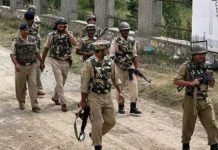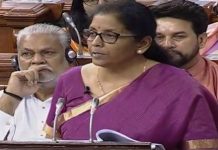 A brief unsavoury description of Rahul Gandhi by former US President Barack Obama kicked up dirt in Indian politics as the ruling Bharatiya Janata Party cited the comments to take potshots at the Congress leader.
A brief unsavoury description of Rahul Gandhi by former US President Barack Obama kicked up dirt in Indian politics as the ruling Bharatiya Janata Party cited the comments to take potshots at the Congress leader.
The controversial comments are part of Obama’s recently published memoirs A Promised Land, where the former US President noted that Rahul “had a nervous, unformed quality about him, as if he were a student who had done the coursework and was eager to impress the teacher but deep down lacked either the aptitude or the passion to master the subject.”
However, Obama also had a few nice things to say about Rahul who “seemed smart and earnest, his good looks resembling his mother’s” and “offered up his thoughts on the future of progressive politics, occasionally pausing to probe me on the details of my 2008 campaign.”
Still, the negative comments were instantly picked up by Rahul’s critics, particularly the Bharatiya Janata Party, which gleefully cited the observations of the former US President to support their old charge that the Gandhi family scion lacks in leadership skills and, by an extension of the argument, is no match to PM Modi.
This comparison has often been made as willingly or unwillingly, Rahul has been in the past projected as the Congress’ prime ministerial candidate who could defeat Modi.
However, the successive national elections in 2014, when the Congress-led UPA lost to the BJP and again in the 2019 national polls, when the grand old party could barely improve its Lok Sabha tally, have proved that there is a leadership crisis of sorts in the opposition party which needs to carry out urgent reforms to remain a relevant force in Indian politics.
Rahul’s ascension as Congress chief in 2017 and then quitting after the 2019 poll debacle has perforce brought back his mother Sonia Gandhi as the party’s interim chief.
To make things worse, the Congress has not been able to either bring Rahul back into the saddle or find another leader who would steer the party through troubled times.
Amidst this confusion, bringing forth a face which could match the popular appeal of Modi and swing the fortunes of the Congress has been a proposition that many party leaders contemplate but are unable to provide a solution for.
Obama’s remarks came at a very inopportune time for the Congress which was facing allegations both from within and its allies that the grand old party turned out to be a weak link in the opposition Grand Alliance’s strategy to defeat the BJP-led NDA in the recently concluded Bihar Assembly elections.
The charge is that the Congress sought to contest 70 of the total 243 seats, up from 40 it contested in 2015 but could win just 19 seats thus adversely impacting the chances of the RJD to defeat the NDA. Also that Rahul did not aggressively campaign in the state polls and even went holidaying in Himachal Pradesh in the middle of the elections.
Obama’s comments, based on a brief interaction he had with the Congress leaders 10 years ago, added fuel to the fire. Though the former US President is a sharp observer of people and politics the world over, it is not obvious why he chose to make his views public now and in the manner in which he did it.
It is not possible for a leader to form an opinion of the other during a short meeting let alone a few interactions. And even if Obama had an opinion of Rahul, its mention could have been avoided at a time when a bitterly-contested US Presidential election exposed the ugly underbelly of the world’s most powerful democracy.
Stunned over the criticism, the Congress officially chose to play down the remarks by saying it preferred not to comment on the views of individuals. But party’s communication department chief Randeep Surjewala did not fail to point out that in the past similar controversial descriptions were used for Modi, without naming the prime minister.
“May I humbly remind certain overzealous friends of the media running a sponsored agenda that we don’t comment on individual’s views in a book. In the past, a leader has been called ‘pyschopath’ and ‘master divider’ by people and agencies. We didn’t acknowledge such comments,” said Surjewala.
He was referring to 2015 remarks of Delhi chief minister Arvind Kejriwal who had termed Modi as a “psychopath” and in 2019 the US-based Time magazine had described him as India’s divider in chief on the cover of its May 20 issue.
Congress leader Tariq Anwar defended Rahul saying he had matured since the UPA days when Obama had a dinner interaction with the former Congress chief.
“Obama and Rahul Gandhi must have met briefly, probably 8-10 years ago when he came to India as US President. To assess someone in a few meetings is tough. Rahul Gandhi’s personality has changed since then, he has gained a lot of experience,” said Anwar.
Rahul’s aide Manickam Tagore, a Lok Sabha member, who was recently upgraded as a permanent invitee to the powerful Congress Working Committee and made in charge of Telangana, un-followed Obama on his Twitter handle in protest despite the fact that such a move would hardly have an impact on the former US President.
“Reason his judgement about Indian political leaders and words against them not acceptable by any true Indian,” said Tagore.
However, a more appropriate perspective came from the Shiv Sena which had been the BJP’s long-term ally but parted ways with the saffron party last year to form a coalition government with the Congress and the Nationalist Congress Party in Maharashtra.
“A foreign politician cannot give such opinions on Indian political leaders. The subsequent domestic political discourse on Obama’s remark on the Congress leader is distasteful. We won’t say ‘Trump is mad’. How much does Obama know about this nation?” Shiv Sena leader Sanjay Raut said.
Whatever be the reasons for Obama’s comments, it gave Rahul’s critics yet another opportunity to flag the shortcomings of the Congress leader.
The controversy around Rahul’s leadership style got hyped again as the grand old party’s plan to be an effective national counter to the BJP have been unsuccessful.
The Bihar debacle again revived the leadership issue that had hit the party in August and led to a fresh round of infighting among the senior leaders.
Former law minister Kapil Sibal stressed on the urgency of intra-party reforms and was quickly backed by former finance minister P Chidambaram, who questioned the logic behind demanding 70 seats in Bihar. Congress leader in the Lok Sabha Adhir Ranjan Chaudhary hit back at his seniors saying Sibal should instead float his own party.
Obama’s book does not carry only unsavoury remarks about Rahul Gandhi. The former US President has lavishly praised former prime minister Manmohan Singh and then UPA chairperson Sonia Gandhi in the same breath while referring to the BJP’s divisive politics.
Obama described Singh as the “chief architect of India’s economic transformation”, and “wise, thoughtful and scrupulously honest.”
Expressing his views over the change of guard after Singh, 78, demitted office, the former US President noted: “Would the baton be successfully passed to Rahul, fulfilling the destiny laid out by his mother and preserving the Congress party’s dominance over the divisive nationalism touted by the BJP?.”
Noting Sonia “as a striking woman in her sixties, dressed in a traditional sari, with dark, probing eyes and a quiet, regal presence,” Obama wrote that “she had emerged from her grief after her husband was killed by a Sri Lankan separatist’s suicide bomb in 1991 to become a leading national politician testified to the enduring power of the family dynasty.”
“It became clear to me, though, that her power was attributable to a shrewd and forceful intelligence,” he said.
While it remains to be seen how and when the Congress will put its house in order, the controversy around Obama’s remarks has shown the importance that India’s still attach to the views, both critical and appreciative, of foreign leaders, especially those from the developed western world, about native politicians.
If the slightly negative comments about Rahul are not okay with the Congress leaders, why should the praise about Manmohan Singh or Sonia be fine with them? Similarly, why should the BJP leaders forget the references made by Obama about the saffron party or by the western media earlier about Modi.
letters@tehelka.com













